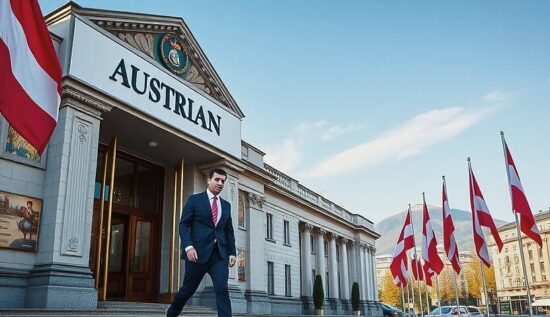Austrian Politics on the Brink of a Historic Shift
As the ÖVP party leadership meets, it appears that a historic realignment is taking shape, with a majority of the party leaning towards a coalition with the FPÖ, paving the way for Herbert Kickl as Chancellor.
One thing is certain: Sebastian Kurz will not play a role in this government.
The End of Speculation
Weeks of rumors about Kurz’s potential comeback were fueled by Karl Nehammer’s resignation as ÖVP leader and Chancellor on Saturday night, seemingly clearing the way for Kurz’s return. However, Kurz himself has issued a clear rejection of the idea.
A Vice-Chancellor under Kickl?
“A comeback to the top for him is not an option” a close associate told Austrian media.
While Kurz has reportedly been actively supporting the developments behind the scenes, he has ruled out the possibility of a comeback.
Why Blue-Black?
The decision to cooperate with the FPÖ is not taken lightly. However, the alternative of new elections poses significant risks for the ÖVP, including a prolonged campaign that would paralyze the country and enable uncontrolled lawmaking in parliament. The party, particularly its economically-minded wing, wants to avoid such scenarios.
Furthermore, the ÖVP’s financial situation is strained, and a costly election campaign would only exacerbate the problem. All these factors speak in favor of a rapid agreement with the FPÖ – even if it means handing over the Chancellorship to Herbert Kickl.
The ÖVP seems ready to accept the FPÖ as the junior partner in a blue-black coalition, while insisting on retaining central ministries like finance and justice. According to insiders, the FPÖ is willing to make significant concessions as long as it gets the Chancellorship.
“A party that has proven to be pragmatic in the states” ÖVP insiders say, referring to the FPÖ.
Another plus point is that the two parties share similar positions on issues like the economy and migration, with only differences in foreign policy remaining, which seem resolvable.
Hattmannsdorfer as the New Star
With Kurz’s rejection, the question of the ÖVP’s future leadership arises, with Wolfgang Hattmannsdorfer, the General Secretary of the Chamber of Commerce, emerging as the most promising candidate. He has profiled himself as a representative of pro-business positions and enjoys broad support within the party.
Hattmannsdorfer is also seen as a “black-blue connection man” having successfully worked in a coalition with the FPÖ in Upper Austria. Alternative names like Stephan Pernkopf, Jochen Danninger, or Claudia Plakolm are mentioned, but Hattmannsdorfer seems the clear favorite at the moment.
Now the ball is in the court of President Alexander Van der Bellen, who could pave the way for a blue-black government by appointing Herbert Kickl as Chancellor. However, the President has repeatedly expressed his reservations about Kickl, and an alternative option would be to push the parties towards new elections, which the ÖVP wants to avoid.
All signs point to Austria having a blue-black government under Herbert Kickl in a few weeks, with the negotiations likely to be concluded quickly, as the programs of the two parties largely align.
With Kurz’s decision to forgo a comeback, an era of Austrian politics comes to an end – for now. However, the question remains: Is this truly the end, or just another phase of his political career? The answer may depend on the stability of the future coalition.





